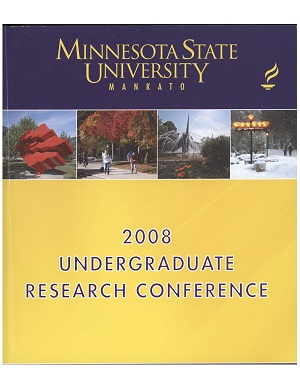A Comparative Approach to Understanding the Determinants of Social Policy Retrenchment in the United Kingdom and Spain.
Location
CSU 253/4
Start Date
21-4-2008 8:00 AM
End Date
21-4-2008 10:00 AM
Student's Major
Government
Student's College
Social and Behavioral Sciences
Mentor's Name
Tomasz Inglot
Mentor's Department
Government
Mentor's College
Social and Behavioral Sciences
Description
Most literature in the field of social policy is focused on understanding the factors contributing to the development and progression of the welfare state in an era of expansion and economic growth. The context in which social policy decisions are made has drastically changed as a result of globalization, increased economic competitiveness, and demographic shifts among domestic populations among other things. As a result the welfare state is under constant pressure for reform, and more specifically, a reduction in social policy spending might be necessary to adapt to this political pressure, termed "retrenchment." This paper applies established theories to explain the difficulty of implementing reforms in Spain and England, notably the importance of established institutions, particularly organized labor, in affecting political decisions. Although many scholars have credited organized labor with the establishment of the welfare state, most have downplayed its role in preventing its decline. By analyzing specific policies initiated under Margaret Thatcher's administration in England, this paper acknowledges and explains the factors concerning the diminished capacity of organized labor to mount meaningful opposition to social policy retrenchment, while showing that the institutional-political arrangement of organized labor in Spain was a crucial element for limiting such reforms.
A Comparative Approach to Understanding the Determinants of Social Policy Retrenchment in the United Kingdom and Spain.
CSU 253/4
Most literature in the field of social policy is focused on understanding the factors contributing to the development and progression of the welfare state in an era of expansion and economic growth. The context in which social policy decisions are made has drastically changed as a result of globalization, increased economic competitiveness, and demographic shifts among domestic populations among other things. As a result the welfare state is under constant pressure for reform, and more specifically, a reduction in social policy spending might be necessary to adapt to this political pressure, termed "retrenchment." This paper applies established theories to explain the difficulty of implementing reforms in Spain and England, notably the importance of established institutions, particularly organized labor, in affecting political decisions. Although many scholars have credited organized labor with the establishment of the welfare state, most have downplayed its role in preventing its decline. By analyzing specific policies initiated under Margaret Thatcher's administration in England, this paper acknowledges and explains the factors concerning the diminished capacity of organized labor to mount meaningful opposition to social policy retrenchment, while showing that the institutional-political arrangement of organized labor in Spain was a crucial element for limiting such reforms.
Recommended Citation
Ludwigson, Justine. "A Comparative Approach to Understanding the Determinants of Social Policy Retrenchment in the United Kingdom and Spain.." Undergraduate Research Symposium, Mankato, MN, April 21, 2008.
https://cornerstone.lib.mnsu.edu/urs/2008/oral-session-03/1




